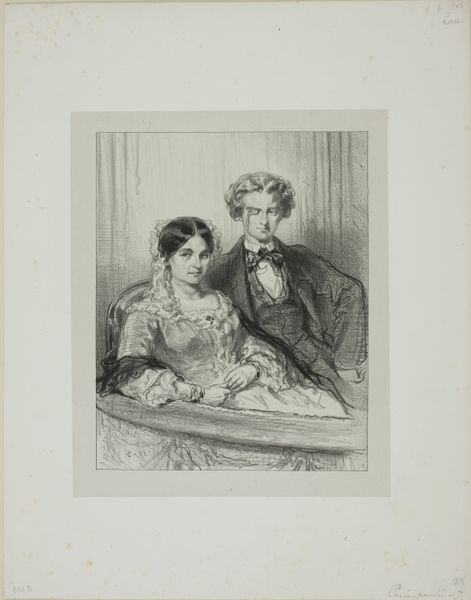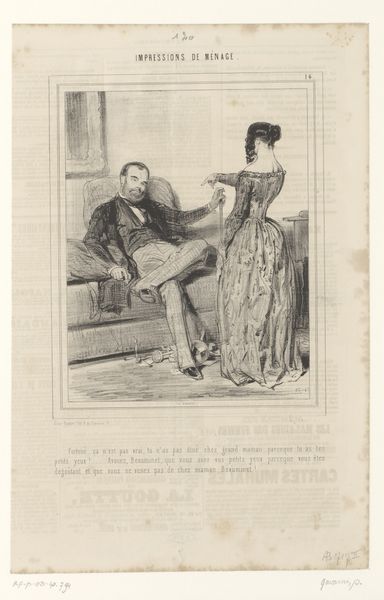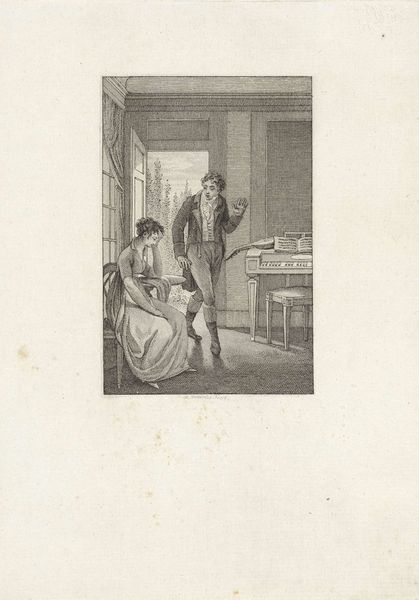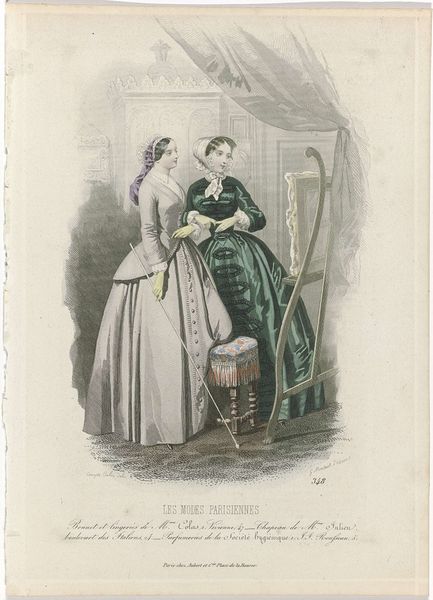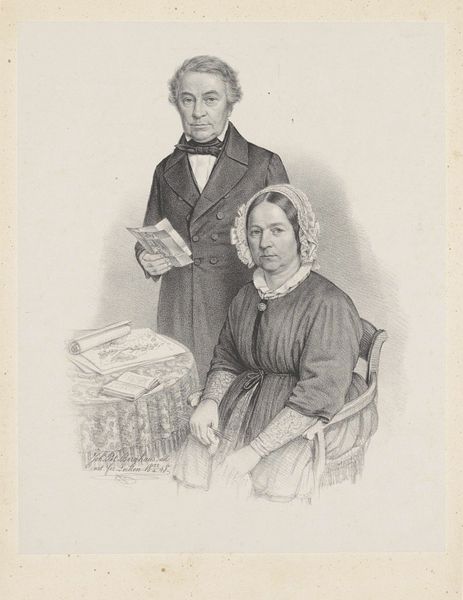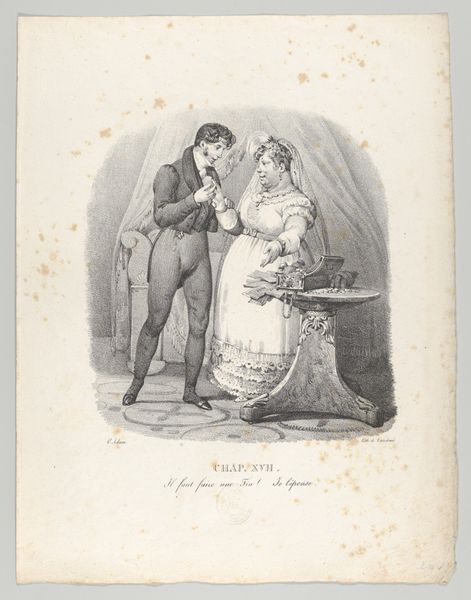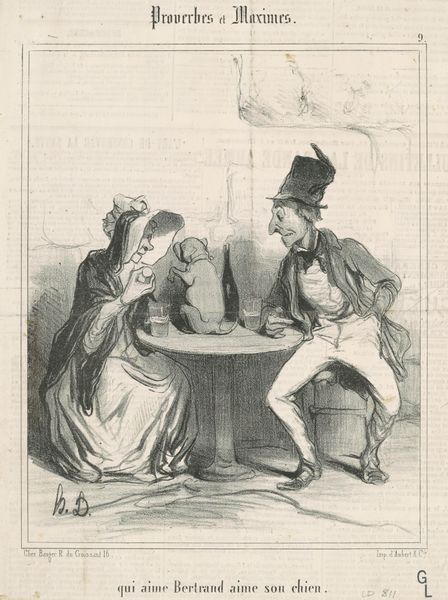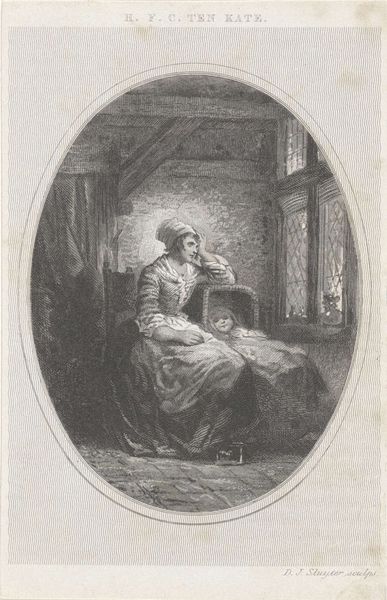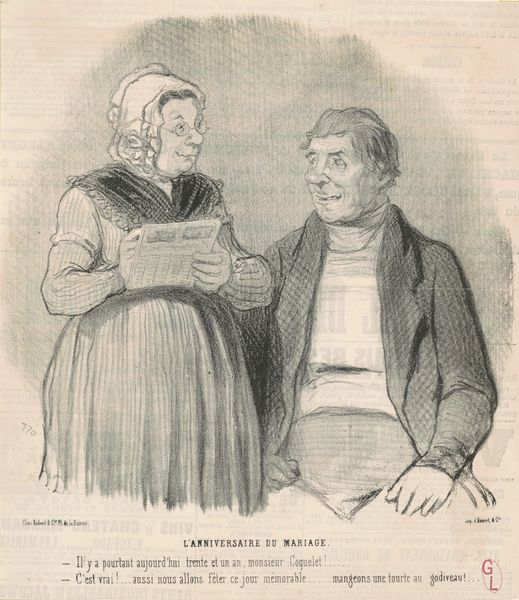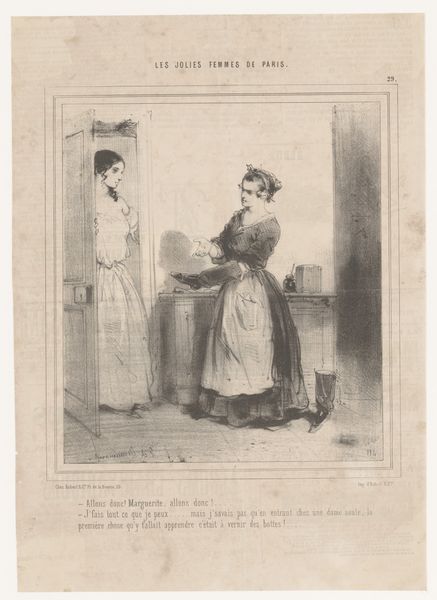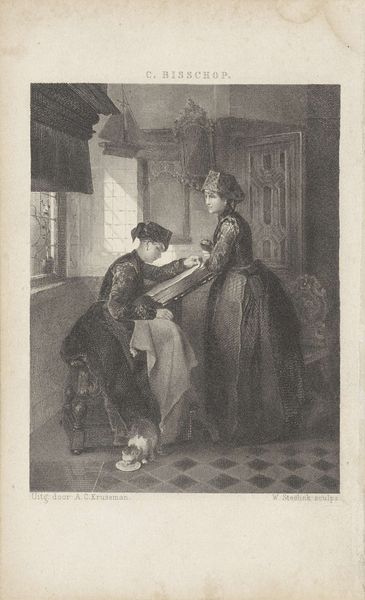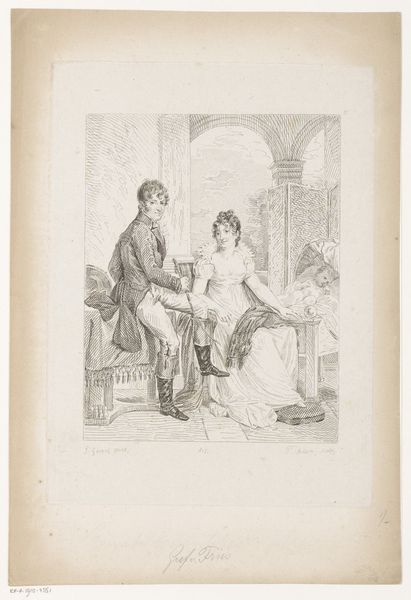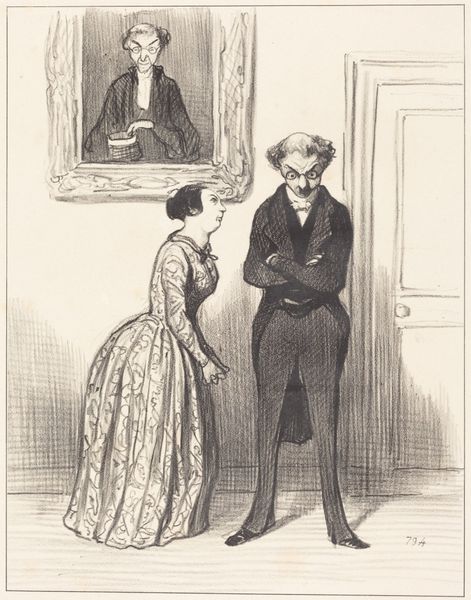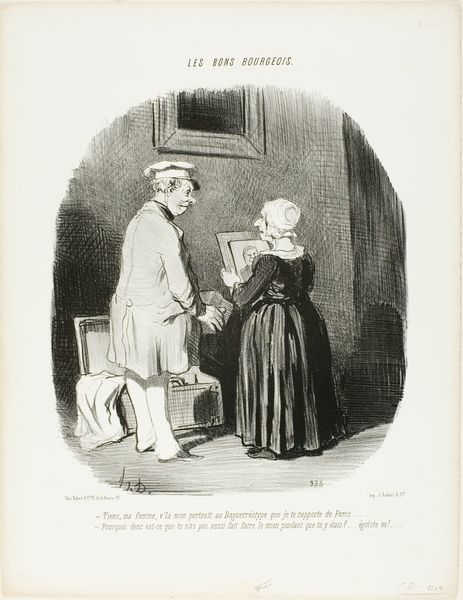
The First Time of 'Asking', from "Illustrated London News" 1869
0:00
0:00
drawing, print
#
pencil drawn
#
drawing
#
yellowing background
#
photo restoration
# print
#
pencil sketch
#
charcoal drawing
#
portrait reference
#
old-timey
#
framed image
#
traditional art medium
#
19th century
#
men
Dimensions: Sheet: 12 11/16 × 9 9/16 in. (32.2 × 24.3 cm)
Copyright: Public Domain
Editor: This print is "The First Time of 'Asking'," created in 1869 by William Luson Thomas. Looking at it, I’m struck by the contrast between the figures' stillness and the incredible detail in the fabric and architectural setting. What stands out to you when you observe this piece? Curator: Formally, the work is very strong. Note the meticulous rendering of texture, the way light is described using only line. Observe how the artist manipulates hatching and cross-hatching to model form and create areas of shadow and highlight. Editor: Yes, the contrast is quite effective. So you focus on the internal artistic values to derive the meaning in this context? Curator: Precisely. In terms of composition, consider how the figures are placed within the rectangular frame. The architecture creates a strong vertical and horizontal structure, containing and defining the figures. The weight given to the interior space influences the mood of that moment. Do you perceive a mood influenced by this treatment? Editor: I suppose the figures do seem enclosed, almost trapped, lending a rather somber tone, and perhaps alluding to restriction by the prevalent standards. Curator: Indeed. And the interplay of line and shadow further emphasizes the textures of garments, architecture, and emotional disposition. The technical execution greatly augments how that moment is being perceived by the viewers. Editor: So it is the formal arrangement, not any presumed narrative, that dictates our emotional response. That is insightful! Curator: Precisely, and focusing on visual composition allows one to look at the underlying emotional narrative as intended by the artist. It creates a powerful impression even beyond the original intended meanings, which shifts and evolves with viewers. Editor: I see. Focusing on the structural components really opens up a fresh appreciation of the image.
Comments
No comments
Be the first to comment and join the conversation on the ultimate creative platform.
